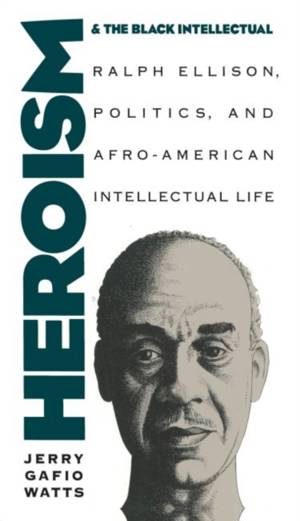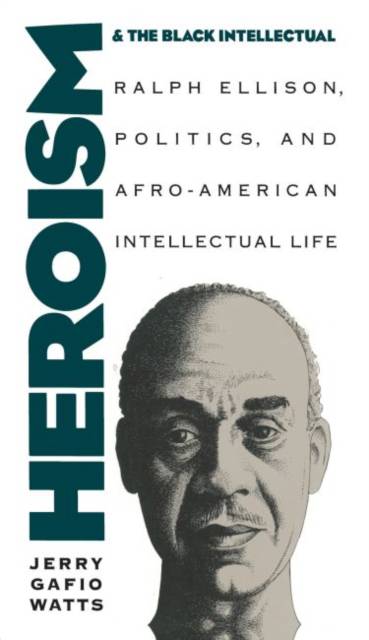
- Afhalen na 1 uur in een winkel met voorraad
- Gratis thuislevering in België vanaf € 30
- Ruim aanbod met 7 miljoen producten
- Afhalen na 1 uur in een winkel met voorraad
- Gratis thuislevering in België vanaf € 30
- Ruim aanbod met 7 miljoen producten
Heroism and the Black Intellectual
Ralph Ellison, Politics, and Afro-American Intellectual Life
Jerry Gafio WattsOmschrijving
Before and after writing Invisible Man, novelist and essayist Ralph Ellison fought to secure a place as a black intellectual in a white-dominated society. In this sophisticated analysis of Ellison's cultural politics, Jerry Watts examines the ways in which black artists and thinkers attempt to establish creative intellectual spaces for themselves. Using Ellison as a case study, Watts makes important observations about the role of black intellectuals in America today.
Watts argues that black intellectuals have had to navigate their way through a society that both denied them the resources, status, and encouragement available to their white peers and alienated them from the rest of their ethnic group. For Ellison to pursue meaningful intellectual activities in the face of this marginalization demanded creative heroism, a new social and artistic stance that challenges cultural stereotypes.
For example, Ellison first created an artistic space for himself by associating with Communist party literary circles, which recognized the value of his writing long before the rest of society was open to his work. In addition, to avoid prescriptive white intellectual norms, Ellison developed his own ideology, which Watts terms the 'blues aesthetic.' Watts's ambitious study reveals a side of Ellison rarely acknowledged, blending careful criticism of art with a wholesale engagement with society.
Specificaties
Betrokkenen
- Auteur(s):
- Uitgeverij:
Inhoud
- Aantal bladzijden:
- 170
- Taal:
- Engels
Eigenschappen
- Productcode (EAN):
- 9780807844779
- Verschijningsdatum:
- 28/10/1994
- Uitvoering:
- Paperback
- Formaat:
- Trade paperback (VS)
- Afmetingen:
- 147 mm x 235 mm
- Gewicht:
- 267 g

Alleen bij Standaard Boekhandel
Beoordelingen
We publiceren alleen reviews die voldoen aan de voorwaarden voor reviews. Bekijk onze voorwaarden voor reviews.









